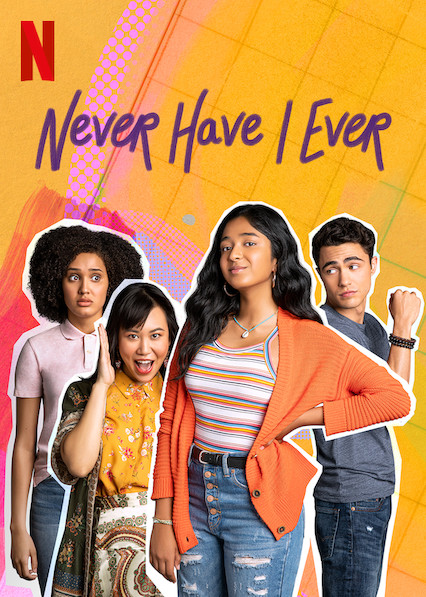Music and Movie Reviews | May 13th, 2020
Netflix’s “Never Have I Ever” Gateways the Representation Conversation
By: Tracy Noze

In this op-ed, Florida A&M University junior Tracy Noze discusses representation in Netflix’s “Never Have I Ever” and the opportunity it presents to navigate the conversation of representation in television.
18-year-old actress Maitreyi Ramakrishnan stars as the main character of the Netflix original series, “Never Have I Ever,” that premiered in late April. Ramakrishnan plays Devi, a first-generation Indian American teenager on a journey to change how people at her high school perceive her while dealing with the recent death of her father.
Since the release of the comedy-drama, viewers have expressed their feelings toward the show on Twitter. Some tweets stated that the show was “corny,” but still a good watch.
“Never Have I Ever” is a great coming of age story with a non-traditional main character and cast. The main takeaway for viewers was the authentic representation from the show and the media rave around the series has been sure to highlight that in particular. Ramakrishnan is currently the new teen “it girl” making her rounds at every publication discussing the importance of her new hit show.
With May being Asian American and Pacific Islander Heritage Month, it’s absolutely necessary to acknowledge and celebrate popular Asian American, Mindy Kaling, who has vastly contributed to American culture— specifically American TV.
Her characters never fail to resonate with the quirky women facing obstacles while journeying through womanhood and striving for success.
Kaling not only wrote, executive produced, and directed episodes of the popular US adaptation of “The Office,” but played the role of Dunder Mifflin’s Indian American customer service representative Kelly Kapoor.
Kaling’s talents also led her to create and star as the main character of “The Mindy Project.” Her ability to use her witty humor as an avenue in creating the roles necessary for Asian American girls is truly inspiring.
The actress’ roles are not only representative of a culture often disregarded in the industry. Her characters never fail to resonate with the quirky women facing obstacles while journeying through womanhood and striving for success.
“Never Have I Ever” allows us to have yet another discussion about representation in Hollywood.
Viewers have taken to Twitter to voice their mixed reviews on the show’s representation. Comments range from the show being what they’ve been waiting for to the show being a “poor form” of South Asian representation.
Although I am not well-versed on how the show represents the experiences of Indian Americans, I can comment on how the show has led us to discuss the complexities of representation.
“Never Have I Ever” has given us a chance to understand that defining representation on TV differs for everyone. Most people focus on the racial or cultural aspects of a show, but this show explores things outside of that.
Kaling with co-creator Lang Fisher translated Kaling’s childhood longing to relate to teen shows into a series.
People connect to Devi, the teenage girl who simply wants to be popular
People connect to Devi, the teenage girl who simply wants to be popular and “a normal girl who doesn’t get called mean names and could actually have a boyfriend.” “Never Have I Ever” gives a voice to those who are normally in the corner by allowing them to have big personalities with relatable stories.
Young adults who obsessed over teen shows and pop culture see Devi as their character. She reads fanfiction and talks about Nick Jonas, normalizing their teen culture on television.
“Devi is certainly not perfect, and she is not meant to speak for or represent all of us,” Radhika Menon wrote on Decider. “That’s what true representation is – a diverse collection of experiences that are imperfect, distinct, and varied.”
Representation is indeed a complex conversation and Kaling does a great job sharing her story from an Indian American perspective.
“Never Have I Ever” represents the teens who longed to be popular, were obsessed with pop culture, and have conflicting cultural identity experiences.
The point of representation is to shine a light on those who normally aren’t in it. “Never Have I Ever” is what we need to individually define what representation means to us and how we can solve the issue regarding the lack of it.





